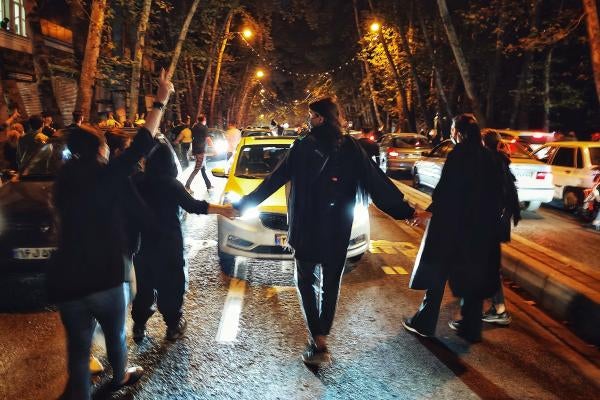Leer la versión en español
Lire la version en français
“I refuse to design your website, because you’re gay.”
“We’re not going to cut your hair in this salon, because you’re old.”
“Our events company will not cater your anniversary party, because you’re black.”
Is this the kind of society we want to live in?
Sadly, it seems to be the kind of society the United States Supreme Court wants to create.
Last week, the Court ruled that nondiscrimination laws cannot be enforced against businesses that offer expressive products and services. The case, 303 Creative v. Elenis, involved a web designer who wanted to make wedding websites but not for same-sex couples. At issue was a law in the US state of Colorado prohibitting discrimination based on sexual orientation.
The Court ruled that, because the conduct involved her expression, it was protected speech, and the nondiscrimination law could not be applied to her.
If any readers are thinking, “well, I’m not gay and I don’t need a website, so none of this affects me,” think again. (And also maybe review Pastor Martin Niemöller’s famous quote.) The ruling significantly weakens laws that protect LGBT people against discrimination, obviously, but it goes much further.
The scope of this decision is vast for at least two reasons. It opens the floodgates for many businesses to discriminate against people on many grounds.
First, the Court offered little guidance on what constitutes expressive goods and services, leaving it open to interpretation by lower courts. Many businesses open to the public offer products that involve expressive creativity. Think florists, hairstylists, nail salons, print shops, photographers, caterers, designers, car detailers… The list is endless.
All these businesses and others may now be able to now claim they too should not have to comply with nondiscrimination laws.
Second, laws prohibiting discrimination based on sexual orientation typically also prohibit discrimination based on race, sex, nationality, disability, age, gender identity, and other so-called “protected classes.” The Court did not indicate that those would be treated any differently.
In short, the Court uprooted decades of legal consensus that businesses open to the public could be required to comply with nondiscrimination laws.
With its empowerment of hate, the Supreme Court seems way out of step with most folks in the US.
Few people want to live in a “we don’t serve your type here” country, and those who do quickly change their mind once they realize “your type” can also mean their type.







